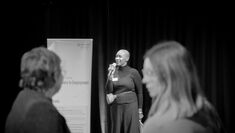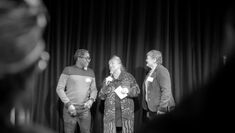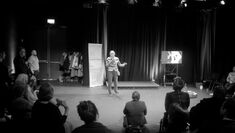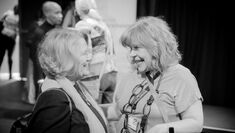Central Hosts Launch of AchieveAbility E-Journal 4th Edition “Neurodiverse Voices: Intergenerational Differences”
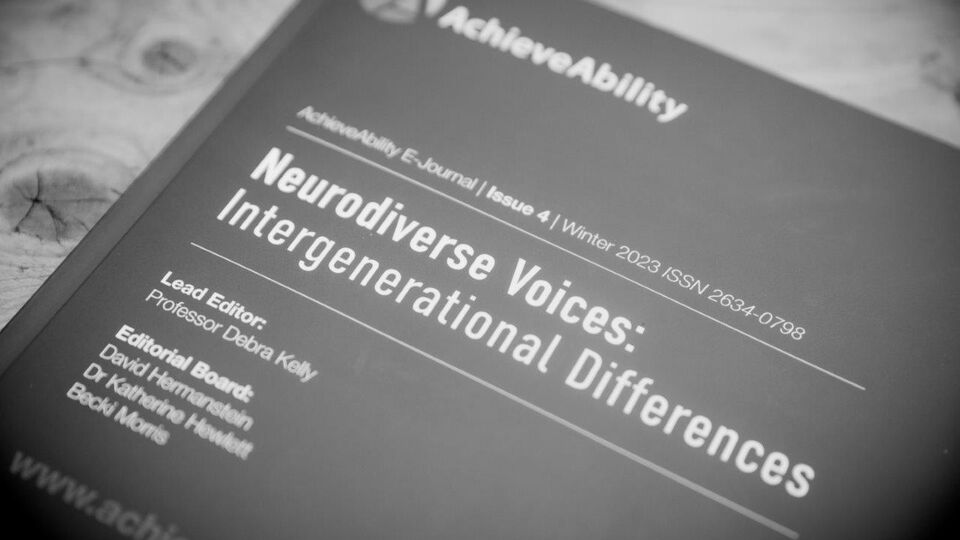
On Thursday 18 April, Central hosted the launch of the 4th edition of the AchieveAbility E-Journal, “Neurodiverse Voices: Intergenerational Differences” in the Dench Studio.
The AchieveAbility E-Journal is the research journal of AchieveAbility and shares the organisation’s overall commitment to promoting policy and delivering practice for successful educational, employment and training opportunities for people who are neurodivergent and dyslexic. Every year AchieveAbility commits to publishing an E-Journal issue, within the academic setting of a scholarly journal, on specific topics and key themes which offer opportunities for people to share their research, work, lived experience and creativity. Previous themes have included the inclusive workplace, good practice in the workplace in a time of COVID-19 and intersectionality and neurodiversity.
The 4th edition of the AchieveAbility E-Journal looks at the increasing profile of neurodivergent people and their intellectual capital across the generations. The theme of ‘intergenerational differences’ is voiced by a wide range of contributors who also span the generations. Their contributions are presented in both more formally academic and in alternative and creative formats.
Fifteen authors and interviewees contributed to “Neurodiverse Voices: Intergenerational Differences”, including Central staff member Cheri Shone and Central graduate Lennie Varvarides with a foreword provided by Central’s Principal Josette Bushell-Mingo.
The launch featured talks from Josette Bushell-Mingo, Professor Nicola Martin, Dr Melanie Thorley, Professor Debra Kelly, David Hermanstein, Becki Morris, James Carroll, Esther Efemini and Cheri Shone. Readings were provided by Joyce Dutch and Lennie Varvarides - the founder of Dyspla. A film screening of Dyspla’s work was also held.
The evening was well attended by the AchieveAbility Board, contributing authors and their guests, alongside academics and professionals working within the broader field of neurodiversity, Central staff and students, representatives from government and members of the press.
Chair of the Westminster Autism Commission and Patron of AchieveAbility Barry Sheerman MP said:
“This fourth edition of the AchieveAbility E-Journal is devoted to the research, knowledge, experiences and creativity of its neurodivergent authors. The quality and range of contributions to this issue, ‘Neurodiverse Voices: Intergenerational Differences’ is outstanding. These voices are ground-breaking in the authenticity of their words, and I am very pleased to provide my support to this publication.
The AchieveAbility Editorial Board, comprising Professor Debra Kelly, David Hermanstein, Dr Katherine Hewlett MBE and Becki Morris, said:
“The range of contributions in this issue is outstanding in its passion and in the knowledge and insights of each discussion. These range from individual and collective academic research to thought-provoking opinion and testimonial pieces – sometimes underpinned by research, sometimes directly addressing the reader/viewer with lived experience, sometimes using the power of creativity, sometimes using a combination of all these – to creative expression in novel and poetic forms. The celebration of difference is integral to the collaborative nature of this e-journal. The value and power of neurodivergent voices is key to our ethos.”
Central Principal and CEO Josette Bushell-Mingo OBE said:
“Central strives to celebrate difference in all that we do, and we join AchieveAbility in celebrating the value of ‘different minds in different formats’ through this publication that promotes neurodivergent research and creative thinking. As Principal of Central – also neurodivergent – I am delighted to include the innovative AchieveAbility E-Journal as part of our ongoing work. We know it is unique as a platform for the voice of the neurodivergent person.”
In her review of the E-Journal, Professor Nicola Martin said:
“I very much enjoyed reading this journal from cover to cover. I appreciated the text breaks and in particular the talking heads. The range of contributors opened up the space for diverse perspectives. The main question that arose for me was around resilience. The journal is full of evidence of systems which do not serve neurodivergent people well and the question for me is why are people failed by the system then expected to develop various coping methods themselves. This journal has the potential to challenge thinking and to act as a provocation to society to change in order to eradicate unnecessary barriers to full participation experienced by neurodivergent people.”
The AchieveAbility E-Journal 4th Edition “Neurodiverse Voices: Intergenerational Differences” is available to read at AchieveAbility’s website here. AchieveAbility does not receive funding to do this work and relies on the time, dedication and expertise of volunteers. Its E-Journals are free to read without paywall, however small donations are encouraged via Local Giving to assist with publication costs. These can be made directly through the AchieveAbility website.
AchieveAbility E-Journal Issue 4
Neurodiverse Voices: Intergenerational Differences
Lead Editor: Professor Debra Kelly
Editorial Board: David Hermanstein, Dr Katherine Hewlett MBE and Becki Morris
Foreword Josette Bushell-Mingo OBE
Contributors: Ann Dean, Jessica Dark, Cheri Shone, Nancy Doyle and Almuth McDowall, Naomi Folb, Esther Efemini, James Carroll (including interviews with Wayne Chin, Jason Why and Dan Sutton), Genevieve Mackenzie, Lennie Varvarides, Nick Park and Joyce Dutch.





